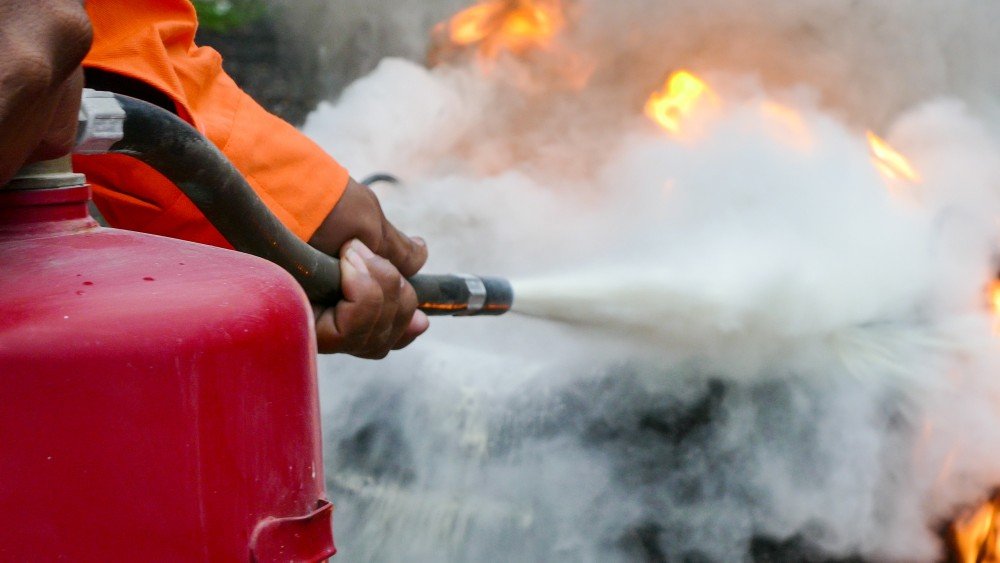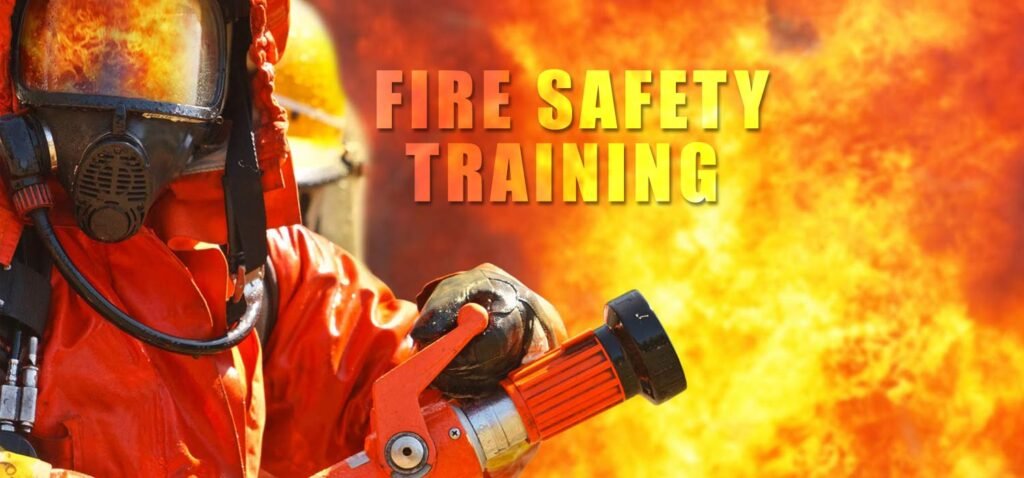E-state Nirman Nigam Fire & Safety Centre of India
E-state Nirman Nigam A fire and safety center is a facility dedicated to preventing, preparing for, and responding to fire emergencies. It serves as a hub for education, training, research, and coordination related to fire safety. In a comprehensive exploration of such a center, numerous aspects can be covered, including its objectives, functions, organizational structure, services offered, equipment and technology utilized, training programs provided, research activities conducted, partnerships and collaborations established, and the significance of its role in promoting fire safety and mitigating fire risks within communities.E-state Nirman Nigam

Objectives:-
A fire and safety center aims to reduce the incidence and impact of fires through prevention, preparedness, and effective response.
It seeks to educate individuals and communities about fire safety practices and promote awareness of fire hazards.
Functions:
Conducting training programs for firefighters, emergency responders, and the general public on fire prevention, suppression techniques, evacuation procedures, and first aid.
Providing resources and expertise for fire risk assessments, safety inspections, and the development of
fire safety plans for buildings and facilities:-
Conducting research to advance knowledge in fire science, engineering, and technology.
Serving as a resource center for fire-related information, materials, and publications.
Collaborating with government agencies, academic institutions, industry partners, and community organizations to address fire safety challenges comprehensively.

Organizational Structure:-
The center may be part of a government agency, a university, a fire department, or a nonprofit organization.
It typically includes administrative staff, fire safety experts, researchers, trainers, and support personnel.
Services Offered:
Fire safety training and certification programs for firefighters, fire inspectors, building managers, and other stakeholders.
Consultation services for fire risk assessments, code compliance, fire protection system design, and emergency preparedness planning.
Public education campaigns through workshops, seminars, school programs, and outreach events.
Emergency response coordination and support during major incidents or disasters.
Equipment and Technology:-
State-of-the-art firefighting equipment, such as fire trucks, hoses, pumps, and personal protective gear.
Fire detection and alarm systems, including smoke detectors, heat sensors, and fire alarm control panels.
Fire suppression systems, such as sprinklers, extinguishers, and foam systems.
Training simulators and virtual reality tools for realistic fire drills and scenario-based training exercises.

Training Programs:
Basic firefighting skills training for recruits, covering fire behavior, hose handling, ventilation techniques, and search and rescue operations.
Advanced training courses for specialized roles, such as hazardous materials response, technical rescue, wildland firefighting, and incident command.
Continuing education programs for experienced firefighters to maintain proficiency and stay updated on new techniques and technologies.
Fundamental research on fire dynamics, combustion processes, material flammability, and fire behavior in various environments.
Applied research on fire safety engineering, structural fire protection, fire-resistant materials, and building codes and standards.
Field studies and post-incident investigations to analyze fire incidents, identify contributing factors, and recommend preventive measures.
Partnerships and Collaborations:-
Collaborating with government agencies, such as fire departments, emergency management agencies, and regulatory authorities, to align efforts and resources for fire prevention and response.
Partnering with academic institutions to conduct joint research projects, share expertise, and develop educational curricula.
Engaging with industry partners to promote the adoption of fire-safe technologies, materials, and practices in building design and construction.
Collaborating with community organizations and advocacy groups to raise awareness of fire safety issues and implement community-based prevention programs E-state Nirman Nigam ..

Fire and safety centers play a crucial role in safeguarding lives, property, and the environment from the devastating effects of fires.
By providing education, training, and resources, they empower individuals and communities to take proactive measures to prevent fires and minimize their impact.
Through research and innovation, they contribute to the continuous improvement of fire safety practices, codes, and standards.
By fostering collaboration and partnerships, they create a network of stakeholders working together to address complex fire safety challenges effectively.
A fire and safety center serves as a vital resource for promoting fire safety, training and educating stakeholders, conducting research, and coordinating efforts to reduce the incidence and impact of fires. Through its multifaceted approach, it contributes to building more resilient and fire-safe communities E-state Nirman Nigam .
About This Artical Is Also Available on The Following Most Reputed International Sites You May Go And Get Knowledge About This Notification:-
As per organisational News by https://chachchhu.in/

As per organisational News by https://pichhle.in/

As per organisational News by https://felio.in/

As per organisational News by https://khamine.in/
As Per Opinion Artical by https://takhiya.in/

As A View Of https://emiror.in/

As Per Opinion Artical by https://vijaygpoliticalthinker.in/

As per organisational News by https://tumhara.in/

As Per Report by https://khula.in/

As Per review by https://fokal.in/

As per organisational News by https://funsi.in/

As Per Opinion of https://lungii.in/

